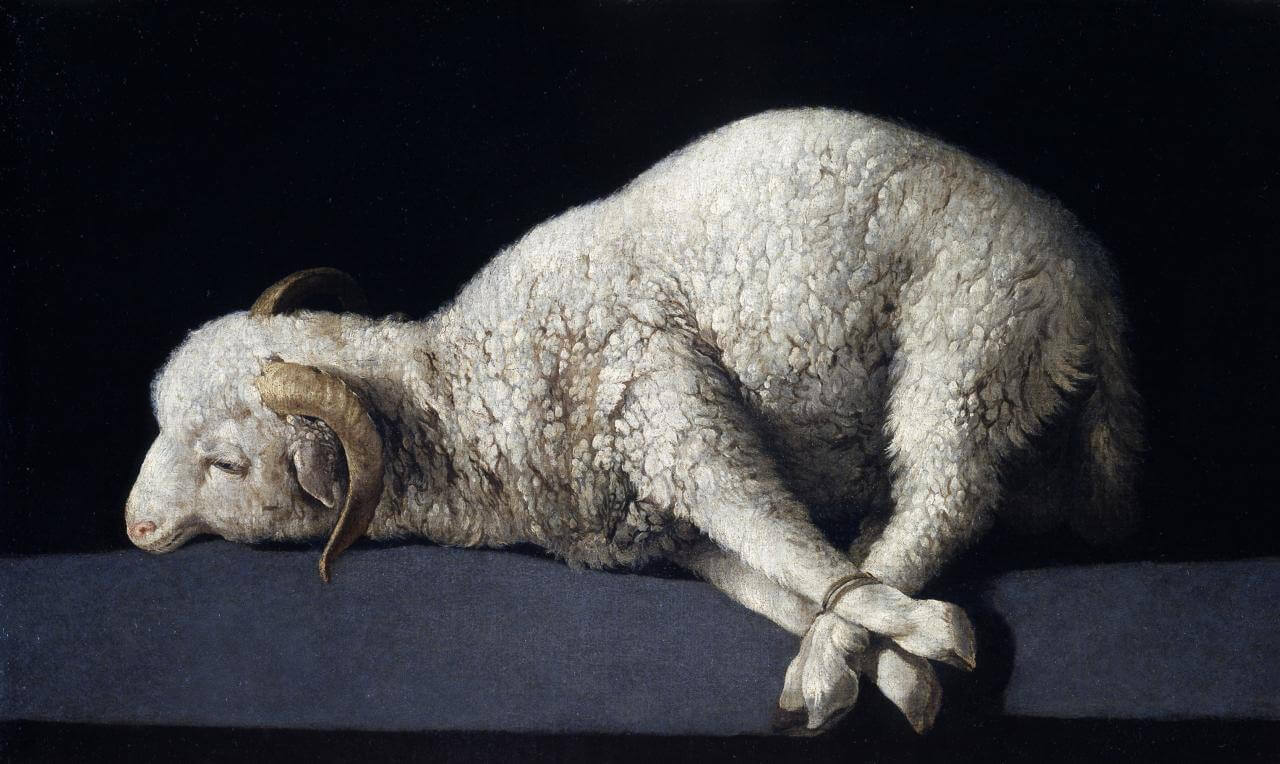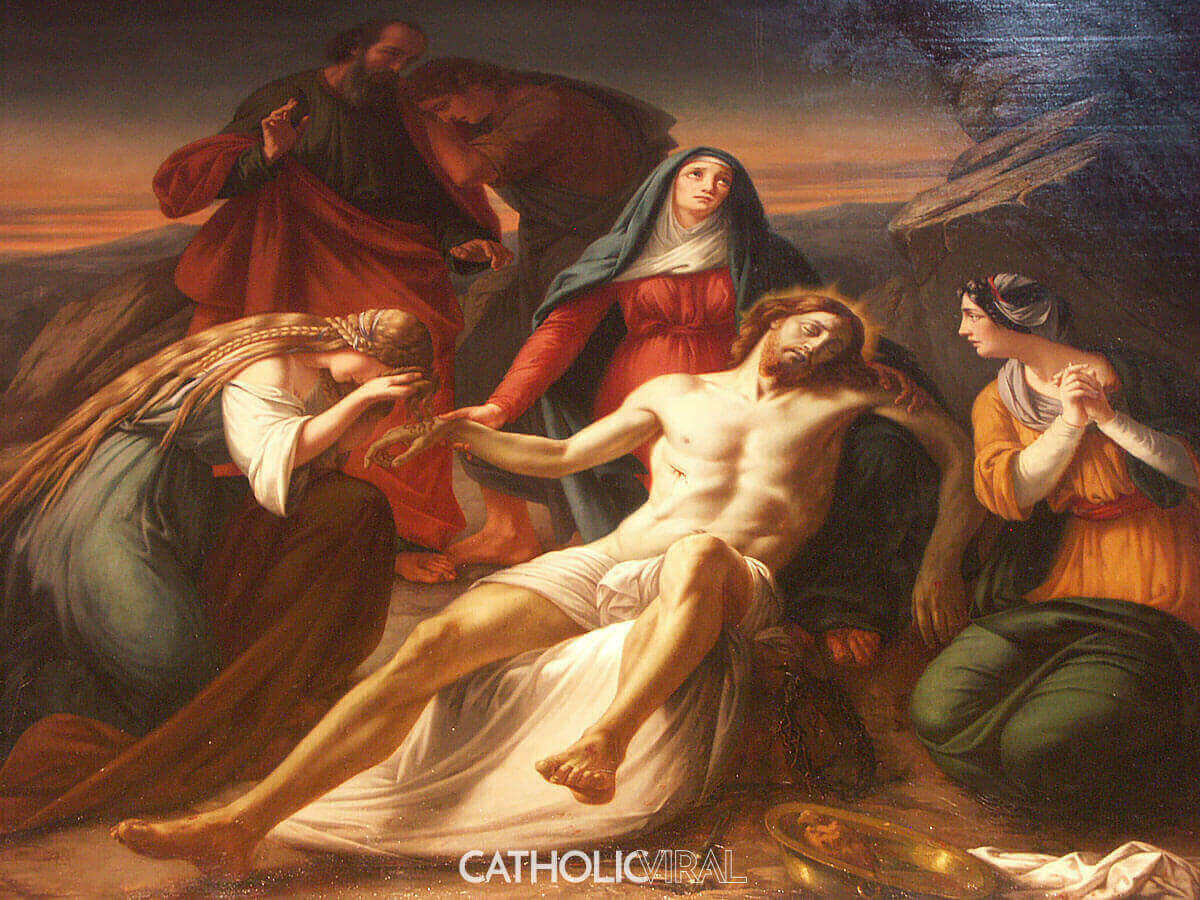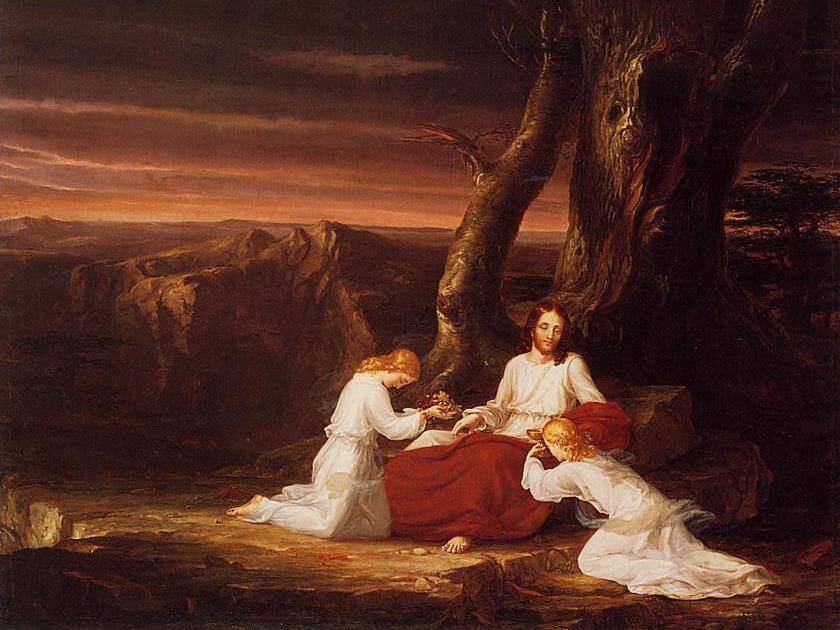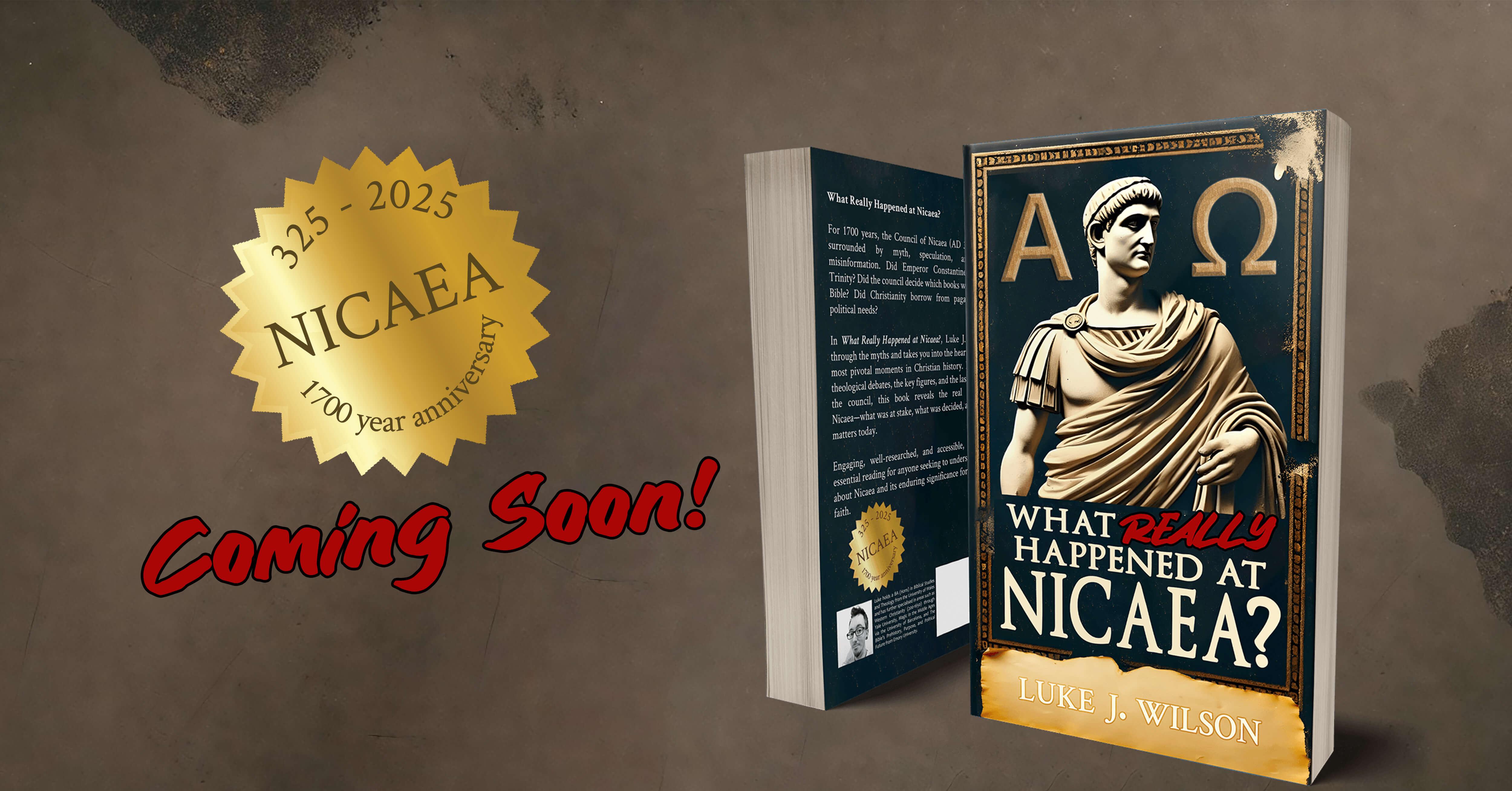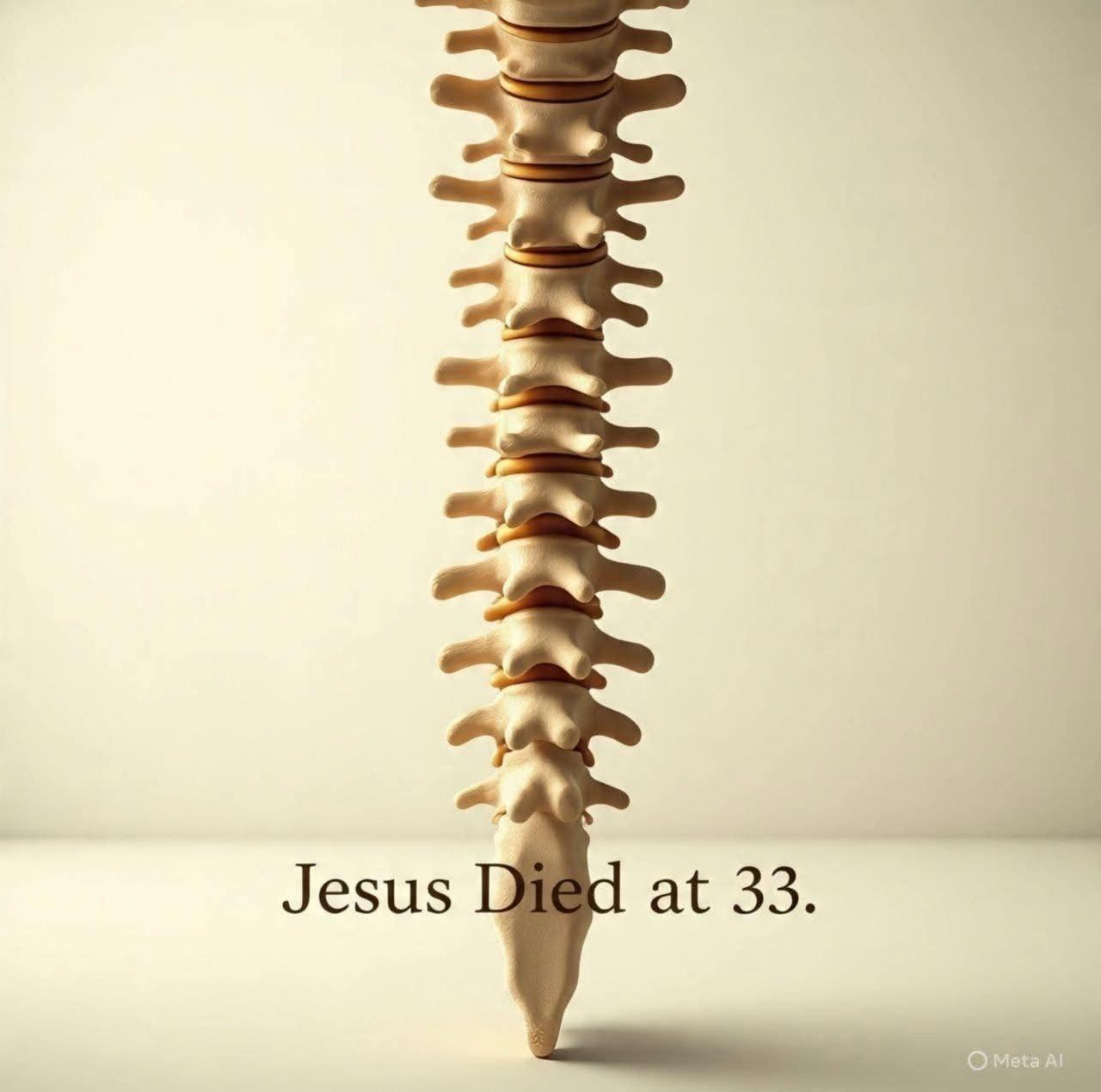Lent Day 28: Athanasius: Life of Anthony: Chaps. 71-80

Day Twenty-eight: St. Athanasius: Life of Anthony: Chaps. 71-80
Who: Bishop of Alexandria; Confessor and Doctor of the Church; born c. 296; died 2 May, 373 AD. He was the main defender of orthodoxy in the 4th-century battle against the Arianism heresy. Certain writers received the title “Doctor” on account of the great advantage their doctrine had on the whole Church, Athanasius especially for his doctrine on the incarnation.
What: The biography of Anthony the Great’s life, which helped to spread the concept of Christian monasticism, particularly in Western Europe.
Why: From the letter’s own prologue: “The life and conversation of our holy Father, Anthony: written and sent to the monks in foreign parts by our Father among the Saints, Athanasius, Bishop of Alexandria.” They wanted an accurate account of his life so they imitate his life and teaching.
When: Somewhere between 356 and 362 AD
You can find today’s reading on page 140 here: lentfatherscomplete.pdf
Well here we are at the penultimate reading before we read the end of this biography and move on from the Life of Anthony.
Today we see the ways in which the Greek philosophers would come and listen to Anthony speak and how they would sometimes discuss things with him, or at other times would mock him and the message of the Cross. They came to mock Anthony because he had never “learned letters” and so was unable to read or write, so the Greeks thought he would be an unkempt and ignorant man, reared in the mountains and unable to reason properly.
Anthony vs Greek Philosophers
At one time during some event, Anthony noticed there were two Greek philosophers present (due to the way they were dressed), and so he approached them asking them why did they “come to a foolish man”, to which they said they didn’t think he was foolish, but “exceedingly prudent”. I’ll admit, I had to look up what prudent meant so I could understand what the Greeks were meaning. In this context it means: “wise; having or showing acute mental discernment”, so the Greeks recognised that Anthony wasn’t just some mountain-dwelling bumpkin!
He answers them saying that if they thought him foolish, then their journey would be a wasted effort, but since they think he is prudent, and since they would agree that we should imitate that which is good, then therefore they ought to imitate him if they wish to also be prudent. Since it was they who sought out Anthony, then they should become as he was, ie. a Christian. “But they departed with wonder, for they saw that even demons feared Anthony”.
Another time some more Greek philosophers came to mock Anthony for his lack of learning with regards to reading and writing. So he asked them, “which is first, mind or letters?” to which they obviously replied, “mind”, saying it was “the inventor of letters”. So Anthony said to them that whoever has “a sound mind hath not need of letters” and at this they marvelled at him since he reasoned so well despite his appearance and lack of education from living in the mountains.
Philosophers try to mock the Cross
At another time, some more Greek philosophers came and tried to mock the beliefs of the Christians for the preaching of the cross, which as we know from Scripture, is not something unexpected (1 Cor 1:18). On hearing their objections, Anthony answered them by turning their own beliefs against them;
Which is more beautiful, to confess the Cross or to attribute to those whom you call gods adultery and the seduction of boys? [...] Next, which is better, to say that the Word of God was not changed, but, being the same, He took a human body for the salvation and well-being of man, that having shared in human birth He might make man partake in the divine and spiritual nature; or to liken the divine to senseless animals and consequently to worship four-footed beasts, creeping things and the likenesses of men? For these things, are the objects of reverence of you wise men. But how do you dare to mock us, who say that Christ has appeared as man...
He goes on to say that they talk endlessly about “the wanderings of Osiris and Isis, the plots of Typhon, the flight of Cronos, his eating his children and the slaughter of his father” as their form of wisdom, yet mock the cross but marvel at the resurrection! But “the same men who told us of the [resurrection] wrote [about the cross]”, Anthony responds. They would mock the cross but be then are silent about all the miracles and wonders which Jesus did which show that “Christ is no longer a man but God”; so they do themselves “much injustice” to have not read the Scriptures properly in order that they should see that “the deeds of Christ prove Him to be God come upon earth for the salvation of men”.
Since they allegorise all of creation with the Greek legends of Poseidon, Apollo, Artemis etc, they “do not worship God Himself, but serve the creature rather than God who created all things” and “make gods of the things created” instead of giving the rightful honour to the “master builder” who is the Creator of all things; and at this, Anthony silenced his opponents.
Anthony’s critics silenced
He continued to preach the message of the Cross to them though: “Tell us therefore where your oracles are now? Where are the charms of the Egyptians? Where the delusions of the magicians? When did all these things cease and grow weak except when the Cross of Christ arose?”
He argues that if by the rising of the cross and the death of Christ put an end to all these powers (Col 2:15), then how is it something to be mocked, surely the only things worthy of mockery now are those powers which have been disarmed. For in every city, “our side flourishes and multiplies over yours” despite the persecutions and mockery Christians receive. Even though the Greek legends are honoured everywhere, their followers diminish and their faith perishes, yet the Christians, even though killed by kings, flourishes all the more! As Tertullian is recorded as saying, which relates to this, “the blood of the martyrs are the seed of the Church”!
These signs, Anthony argues, are the proof of our faith. Proof doesn’t lie in fancy, well-worded arguments, as the Greeks would have it or want, but rather in the manifestation of faith. To which, Anthony pointed out that in their midst were some who were “vexed with demons”; so they had them brought before him. He goes on to say that with all their wordy arguments, magic, arts or idols, they cannot cleanse such a person. So “put away your strife with us and you shall see the power of the Cross of Christ” he declares before praying for these people, signing them with the cross a few times and then calling upon Christ, to which they got up whole and were totally healed and now free of the demons!
The Greek philosophers “were astonished exceedingly at the understanding of the man and at the sign which had been wrought”, but Anthony rebuked them saying “we are not the doers of these things, but it is Christ who worketh them by means of those who believe on Him” and called on them to believe in Jesus. But they “saluted him and departed, confessing the benefit they had received from him”.
What is sad, is that I’ve seen so many times the power of God at work in people’s lives like this similar to these Greek philosophers, yet even though they have recognised and acknowledged God in it, they still do as the Greeks did, and just “salute and depart”, taking the blessing but refusing to change their lives and follow Christ, being in some sense the fulfilment of the Parable of the Sower (Matt 13:1-9).
Tomorrow we will conclude with Athanasius’ telling of the life of Anthony, so stay tuned to see how it ends!
Leave a comment Like Back to Top Seen 432 times Liked 0 times
Enjoying this content?
Support my work by becoming a patron on Patreon!
By joining, you help fund the time, research, and effort that goes into creating this content — and you’ll also get access to exclusive perks and updates.
Even a small amount per month makes a real difference. Thank you for your support!
Subscribe to Updates
If you enjoyed this, why not subscribe to free email updates and join over 864 subscribers today!
My new book is out now! Order today wherever you get books
Recent Posts
Luke J. Wilson | 19th August 2025 | Fact-Checking
A poetic post has been circulating widely on Facebook, suggesting that our anatomy mirrors various aspects of Scripture. On the surface it sounds inspiring, but when we take time to weigh its claims, two main problems emerge. The viral post circulating on Facebook [Source] First, some of its imagery unintentionally undermines the pre-existence of Christ, as if Jesus only “held the earth together” for the 33 years of His earthly life. Second, it risks reducing the resurrection to something like biological regeneration, as if Jesus simply restarted after three days, instead of being raised in the miraculous power of God. Alongside these theological dangers, many of the scientific claims are overstated or symbolic rather than factual. Let’s go through them one by one. 1. “Jesus died at 33. The human spine has 33 vertebrae. The same structure that holds us up is the same number of years He held this Earth.” The human spine does generally have 33 vertebrae, but that number includes fused bones (the sacrum and coccyx), and not everyone has the same count. Some people have 32 or 34. More importantly, the Bible never says Jesus was exactly 33 when He died — Luke tells us He began His ministry at “about thirty” (Luke 3:23), and we know His public ministry lasted a few years, but His precise age at death is a tradition, not a biblical statement. See my other recent article examining the age of Jesus here. Theologically, the phrase “the same number of years He held this Earth” is problematic. Jesus did not hold the world together only for 33 years. The eternal Word was with God in the beginning (John 1:1–3), and “in Him all things hold together” (Colossians 1:17). Hebrews says He “sustains all things by His powerful word” (Hebrews 1:3). He has always upheld creation, before His incarnation, during His earthly ministry, and after His resurrection. To imply otherwise is to risk undermining the pre-existence of Christ. 2. “We have 12 ribs on each side. 12 disciples. 12 tribes of Israel. God built His design into our bones.” Most people do have 12 pairs of ribs, though some are born with an extra rib, or fewer. The number 12 is certainly biblical: the 12 tribes of Israel (Genesis 49), the 12 apostles (Matthew 10:1–4), and the 12 gates and foundations of the New Jerusalem (Revelation 21). But there’s no biblical connection between rib count and these symbolic twelves. This is a case of poetic association, not design woven into our bones. The only real mention of ribs in Scripture is when Eve is created from one of Adam’s ribs in Genesis 2:21–22, which has often led to the teaching in some churches that men have one less rib than women (contradicting this new claim)! 3. “The vagus nerve runs from your brain to your heart and gut. It calms storms inside the body. It looks just like a cross.” The vagus nerve is real and remarkable. It regulates heart rate, digestion, and helps calm stress, and doctors are even using vagus nerve stimulation as therapy for epilepsy, depression, and inflammation showing it really does “calm storms” in the body. But it does not look like a cross anatomically. The language about “calming storms” may echo the way Jesus calmed the storm on the Sea of Galilee (Mark 4:39), but here again the poetic flourish stretches science (and Scripture) beyond what’s accurate. 4. “Jesus rose on the third day. Science tells us that when you fast for 3 days, your body starts regenerating. Old cells die. New ones are born. Healing begins. Your body literally resurrects itself.” There’s a serious theological problem here. To equate Jesus’ resurrection with a biological “regeneration” after fasting is to misrepresent what actually happened. Fasting can indeed trigger cell renewal and immune repair, but it cannot bring the dead back to life. It’s still a natural process that happens...
Luke J. Wilson | 08th July 2025 | Islam
“We all worship the same God”. Table of Contents 1) Where YHWH and Allah Appear Similar 2) Where Allah’s Character Contradicts YHWH’s Goodness 3) Where Their Revelations Directly Contradict Each Other 4) YHWH’s Love for the Nations vs. Allah’s Commands to Subjugate 5) Can God Be Seen? What the Bible and Qur’an Say 6) Salvation by Grace vs. Salvation by Works Conclusion: Same God? Or Different Revelations? You’ve heard it from politicians, celebrities, and even some pastors. It’s become something of a modern mantra, trying to shoehorn acceptance of other beliefs and blend all religions into one, especially the Abrahamic ones. But what if the Bible and Qur’an tell different stories? Let’s see what their own words reveal so you can judge for yourself. This Tweet recently caused a stir on social media 1) Where YHWH and Allah Appear Similar Many point out that Jews, Christians, and Muslims share a belief in one eternal Creator God. That’s true — up to a point. Both the Bible and Qur’an describe God as powerful, all-knowing, merciful, and more. Here’s a list comparing some of the common shared attributes between YHWH and Allah, with direct citations from both Scriptures: 26 Shared Attributes of YHWH and Allah According to the Bible (NRSV) and the Qur’an Eternal YHWH: “From everlasting to everlasting you are God.” — Psalm 90:2 Allah: “He is the First and the Last…” — Surah 57:3 Creator YHWH: “In the beginning God created the heavens and the earth.” — Genesis 1:1 Allah: “The Originator of the heavens and the earth…” — Surah 2:117 Omnipotent (All-Powerful) YHWH: “Nothing is too hard for you.” — Jeremiah 32:17 Allah: “Allah is over all things competent.” — Surah 2:20 Omniscient (All-Knowing) YHWH: “Even before a word is on my tongue, O LORD, you know it.” — Psalm 139:4 Allah: “He knows what is on the land and in the sea…” — Surah 6:59 Omnipresent (Present Everywhere) YHWH: “Where can I go from your Spirit?” — Psalm 139:7–10 Allah: “He is with you wherever you are.” — Surah 57:4 Holy YHWH: “Holy, holy, holy is the LORD of hosts.” — Isaiah 6:3 Allah: “The Holy One (Al-Quddus).” — Surah 59:23 Just YHWH: “A God of faithfulness and without injustice.” — Deuteronomy 32:4 Allah: “Is not Allah the most just of judges?” — Surah 95:8 Merciful YHWH: “The LORD, merciful and gracious…” — Exodus 34:6 Allah: “The Most Gracious, the Most Merciful.” — Surah 1:1 Compassionate YHWH: “As a father has compassion on his children…” — Psalm 103:13 Allah: “He is the Forgiving, the Affectionate.” — Surah 85:14 Faithful YHWH: “Great is your faithfulness.” — Lamentations 3:22–23 Allah: “Indeed, the promise of Allah is truth.” — Surah 30:60 Unchanging YHWH: “For I the LORD do not change.” — Malachi 3:6 Allah: “None can change His words.” — Surah 6:115 Sovereign YHWH: “The LORD has established his throne in the heavens…” — Psalm 103:19 Allah: “Blessed is He in whose hand is dominion…” — Surah 67:1 Loving YHWH: “God is love.” — 1 John 4:8 Allah: “Indeed, my Lord is Merciful and Affectionate (Al-Wadud).” — Surah 11:90 Forgiving YHWH: “I will not remember your sins.” — Isaiah 43:25 Allah: “Allah forgives all sins…” — Surah 39:53 Wrathful toward evil YHWH: “The LORD is a jealous and avenging God…” — Nahum 1:2 Allah: “For them is a severe punishment.” — Surah 3:4 One/Unique YHWH: “The LORD is one.” — Deuteronomy 6:4 Allah: “Say: He is Allah, One.” — Surah 112:1 Jealous of worship YHWH: “I the LORD your God am a jealous God.” �...
Luke J. Wilson | 05th June 2025 | Blogging
As we commemorated the 500th anniversary of the Protestant Reformation this year, the familiar image of Martin Luther striding up to the church door in Wittenberg — hammer in hand and fire in his eyes — has once again taken centre stage. It’s a compelling picture, etched into the imagination of many. But as is often the case with historical legends, closer scrutiny tells a far more nuanced and thought-provoking story. The Myth of the Door: Was the Hammer Ever Raised? Cambridge Reformation scholar Richard Rex is one among several historians who have challenged the romanticised narrative. “Strangely,” he observes, “there’s almost no solid evidence that Luther actually went and nailed them to the church door that day, and ample reasons to doubt that he did.” Indeed, the first image of Luther hammering up his 95 Theses doesn’t appear until 1697 — over 180 years after the fact. Eric Metaxas, in his recent biography of Luther, echoes Rex’s scepticism. The earliest confirmed action we can confidently attribute to Luther on 31 October 1517 is not an act of public defiance, but the posting of two private letters to bishops. The famous hammer-blow may never have sounded at all. Conflicting Accounts Philip Melanchthon, Luther’s successor and first biographer, adds another layer of complexity. He claimed Luther “publicly affixed” the Theses to the door of All Saints’ Church, but Melanchthon wasn’t even in Wittenberg at the time. Moreover, Luther himself never mentioned posting the Theses publicly, even when recalling the events years later. Instead, he consistently spoke of writing to the bishops, hoping the matter could be addressed internally. At the time, it was common practice for a university disputation to be announced by posting theses on church doors using printed placards. But no Wittenberg-printed copies of the 95 Theses survive. And while university statutes did require notices to be posted on all church doors in the city, Melanchthon refers only to the Castle Church. It’s plausible Luther may have posted the Theses later, perhaps in mid-November — but even that remains uncertain. What we do know is that the Theses were quickly circulated among Wittenberg’s academic elite and, from there, spread throughout the Holy Roman Empire at a remarkable pace. The Real Spark: Ink, Not Iron If there was a true catalyst for the Reformation, it wasn’t a hammer but a printing press. Luther’s Latin theses were swiftly reproduced as pamphlets in Basel, Leipzig, and Nuremberg. Hundreds of copies were printed before the year’s end, and a German translation soon followed, though it may never have been formally published. Within two weeks, Luther’s arguments were being discussed across Germany. The machinery of mass communication — still in its relative infancy — played a pivotal role in what became a theological, political, and social upheaval. The Letters of a Conscientious Pastor Far from the bold revolutionary of popular imagination, Luther appears in 1517 as a pastor deeply troubled by the abuse of indulgences, writing with respectful concern to those in authority. In his letter to Archbishop Albrecht of Mainz, he humbly addresses the archbishop as “Most Illustrious Prince,” and refers to himself as “the dregs of humanity.” “I, the dregs of humanity, have so much boldness that I have dared to think of a letter to the height of your Sublimity,” he writes — hardly the voice of a man trying to pick a fight. From Whisper to Roar Luther’s initial appeal through formal channels was, predictably, ignored. He was advised not to make trouble. But as opposition mounted and corruption remained unchecked, the once quiet reformer grew louder. His theological convictions deepened, and his public persona evolved. The lion did eventually roar — but not on October 31. A Catholic Reformer, Not a Protestant Founder It’s vital to remem...
Luke J. Wilson | 20th May 2025 | Islam
You are not alone. Around the world, many Muslims — people who already believe in one God, pray, and seek to live righteously — are drawn to know more about Jesus (ʿĪsā in Arabic). Some have heard He is more than a prophet. Some have sensed His presence in a dream or vision. And some simply long to know God more deeply, personally, and truly. So what does it mean to become a Christian? And how can you take that step? This guide is for you. 1. What Christians Believe About God and Jesus ➤ One God, Eternal and Good Christians believe in one God — the same Creator known to Abraham, Moses, and the prophets. But we also believe God is more personal and relational than many realise. In His love, He has revealed Himself as Father, Son (Jesus), and Holy Spirit — not three gods, but one God in three persons. ➤ Jesus Is More Than a Prophet Muslims honour Jesus as a great prophet, born of the virgin Mary. Christians also affirm this — but go further. The Bible teaches that Jesus is the Word of God (Kalimat Allāh), who became flesh to live among us. He performed miracles, healed the sick, raised the dead — and lived without sin.Jesus came not just to teach but to save — to bring us back to God by bearing our sins and rising again in victory over death. 2. Why Do We Need Saving? ➤ The Problem: Sin All people — no matter their religion — struggle with sin. We lie, get angry, feel jealous, act selfishly, or fail to love God fully. The Bible says: “All have sinned and fall short of the glory of God.” (Romans 3:23) Sin separates us from God. And no matter how many good deeds we do, we can never make ourselves perfect or holy before Him. ➤ The Solution: Jesus Because God loves us, He did not leave us in our sin. He sent Jesus, His eternal Word, to live as one of us. Jesus died willingly, offering His life as a sacrifice for our sins, then rose again on the third day. “But God proves his love for us in that while we still were sinners Christ died for us.” (Romans 5:8) 3. How Do I Become a Christian? Becoming a Christian is not about joining a Western religion. It’s about entering a relationship with God through faith in Jesus Christ. Here is what the Bible says: ✝️ 1. Believe in Jesus Believe that Jesus is the Son of God, that He died for your sins, and that He rose again. “If you confess with your lips that Jesus is Lord and believe in your heart that God raised him from the dead, you will be saved.” (Romans 10:9) 💔 2. Repent of Your Sins Turn away from sin and ask God to forgive you. This is called repentance. It means being truly sorry and choosing a new way. “Repent therefore, and turn to God so that your sins may be wiped out.” (Acts 3:19) 💧 3. Be Baptised Jesus commands His followers to be baptised in water as a sign of their new life. Baptism represents washing away your old life and rising into a new one with Jesus. “Repent and be baptised every one of you in the name of Jesus Christ so that your sins may be forgiven.” (Acts 2:38) 🕊️ 4. Receive the Holy Spirit When you believe in Jesus, God gives you the Holy Spirit to live within you, guiding you, comforting you, and helping you follow His will. “You received the Spirit of adoption, by whom we cry, ‘Abba! Father!’” (Romans 8:15) 🧎 5. Begin a New Life As a Christian, you are born again — spiritually renewed. You begin to grow in faith, love, and holiness. You read the Bible, pray, fast, and gather with other believers. Your life is no longer your own; you now live for God. 4. What Does a Christian Life Look Like? Jesus said: “If anyone wants to become my followers, let them deny themselves and take up their cross and follow me.” (Matthew 16:24) This means: Loving God with all your heart Loving your neighbour — even your enemies Forgiving others ...



